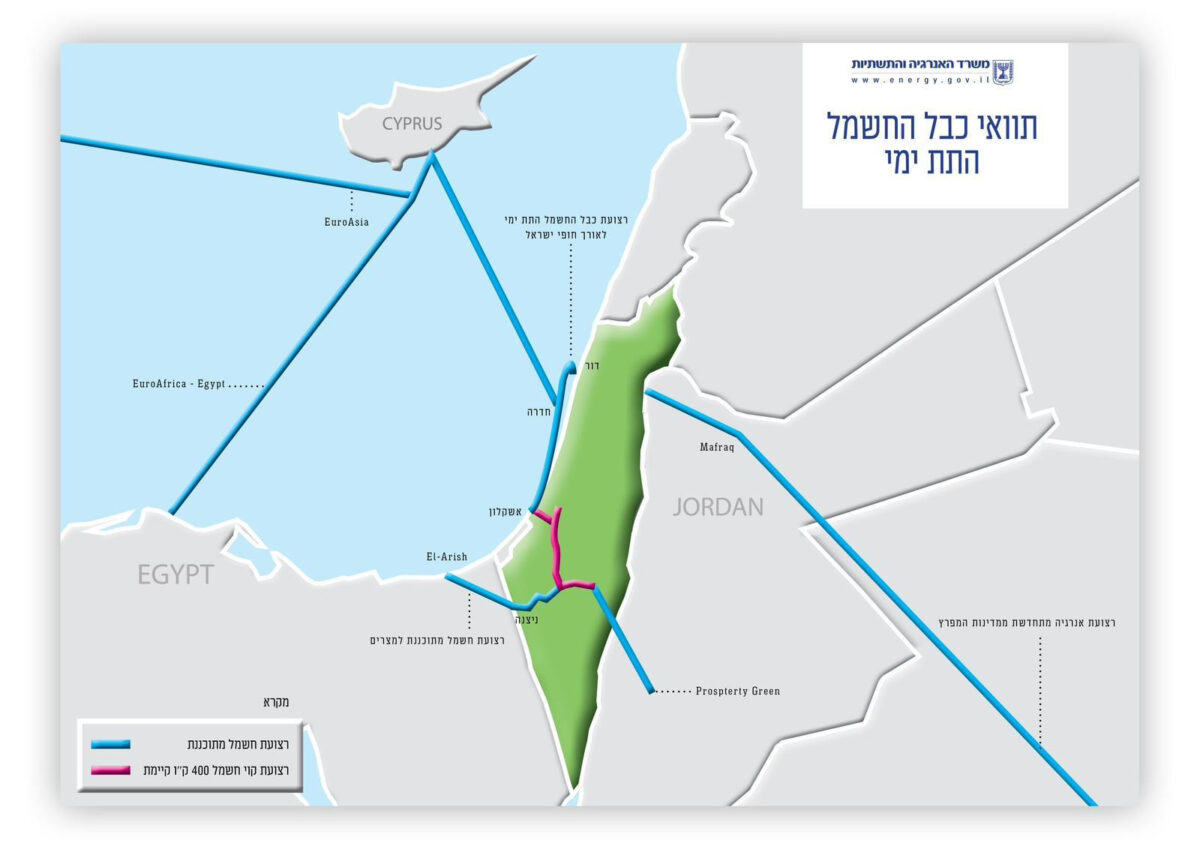Israel's National Planning and Construction Council has approved a new project to build a submarine cable along its national coastline. It said the Ministry of Energy has already examined and approved the transmission line, which will span 150 km from Ashkelon in the south to Haifa in the north.
The Israeli government said that the maritime strip for the project will align with the area designated for natural gas activities. It noted the need to evaluate electric cables, natural gas pipelines, and other infrastructure to mitigate environmental impacts.
The government also noted the possibility of connecting the new cable to a submarine transmission line planned by Israel, Greece, and Cyprus in the Mediterranean Sea. This interconnector, projected to be completed by 2024 and operational by 2025, would have a power capacity of 1,000 MW to 2,000 MW.
The new cable is also designed to link with existing transmission lines that presently distribute electricity to Jordan, Egypt, and the Gulf states. Israeli Energy Minister Israel Katz noted the project's significance in advancing the Israeli electricity grid and establishing the country as an energy powerhouse.
Popular content
“We want to become an energy bridge connecting east and west,” said Katz.
Israel recently introduced several measures to support solar energy development. In late May, the Israel Land Authority issued a tender to lease 28,000 acres (11,331 hectares) in the Negev desert for the deployment of large-scale solar power plants. In April, the Electricity Authority introduced a supplementary tariff for low-voltage solar plants integrated with energy storage systems. And in March, the government introduced new provisions that authorize bilateral PPAs between independent power producers and final clients.
The country has already about 5 GW of PV. Its renewables target is 20% of generation by 2025 and 30% by 2030. Extrapolated from the current situation, this corresponds to about 17 GW of solar generation.
This content is protected by copyright and may not be reused. If you want to cooperate with us and would like to reuse some of our content, please contact: editors@pv-magazine.com.



1 comment
By submitting this form you agree to pv magazine using your data for the purposes of publishing your comment.
Your personal data will only be disclosed or otherwise transmitted to third parties for the purposes of spam filtering or if this is necessary for technical maintenance of the website. Any other transfer to third parties will not take place unless this is justified on the basis of applicable data protection regulations or if pv magazine is legally obliged to do so.
You may revoke this consent at any time with effect for the future, in which case your personal data will be deleted immediately. Otherwise, your data will be deleted if pv magazine has processed your request or the purpose of data storage is fulfilled.
Further information on data privacy can be found in our Data Protection Policy.